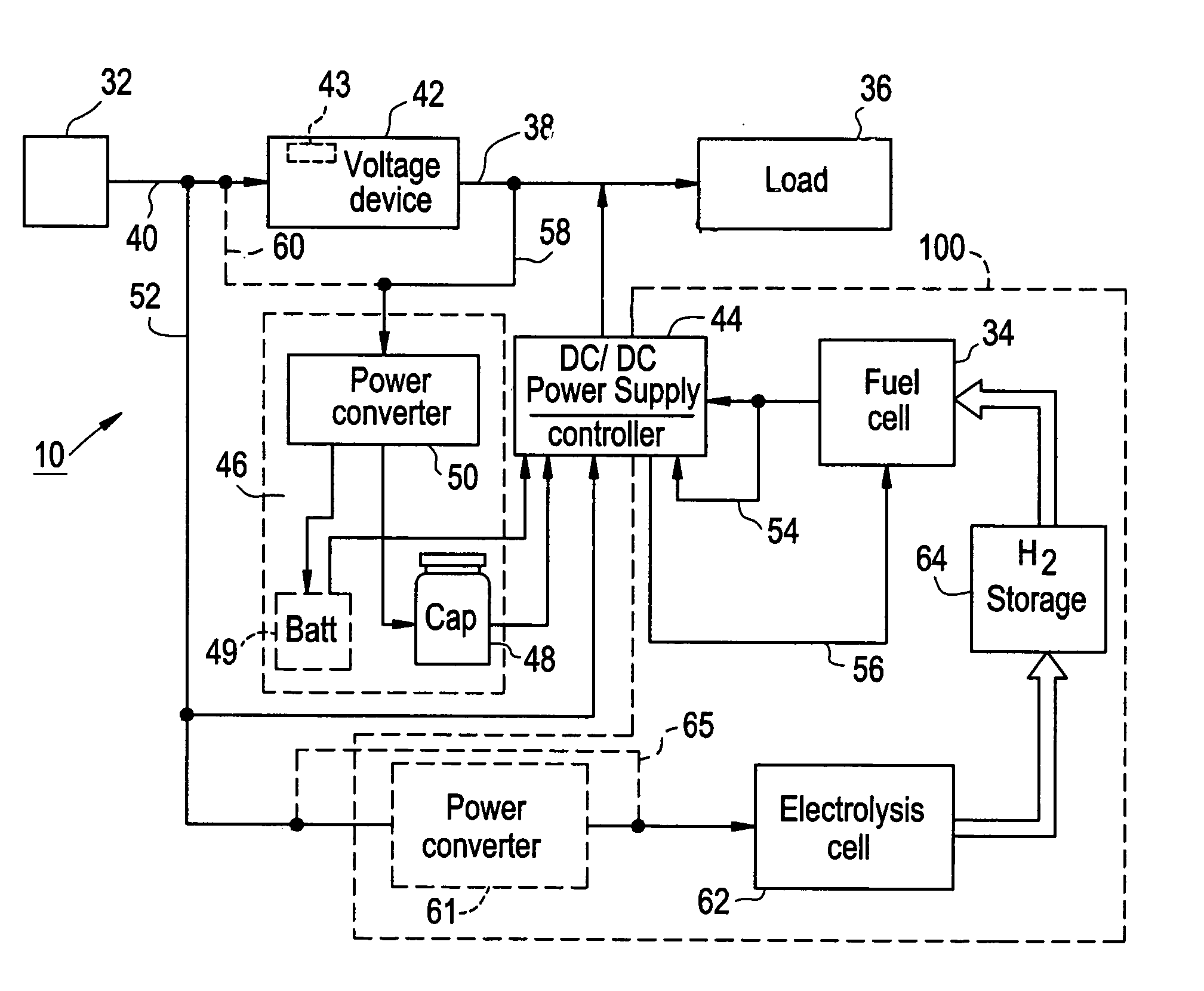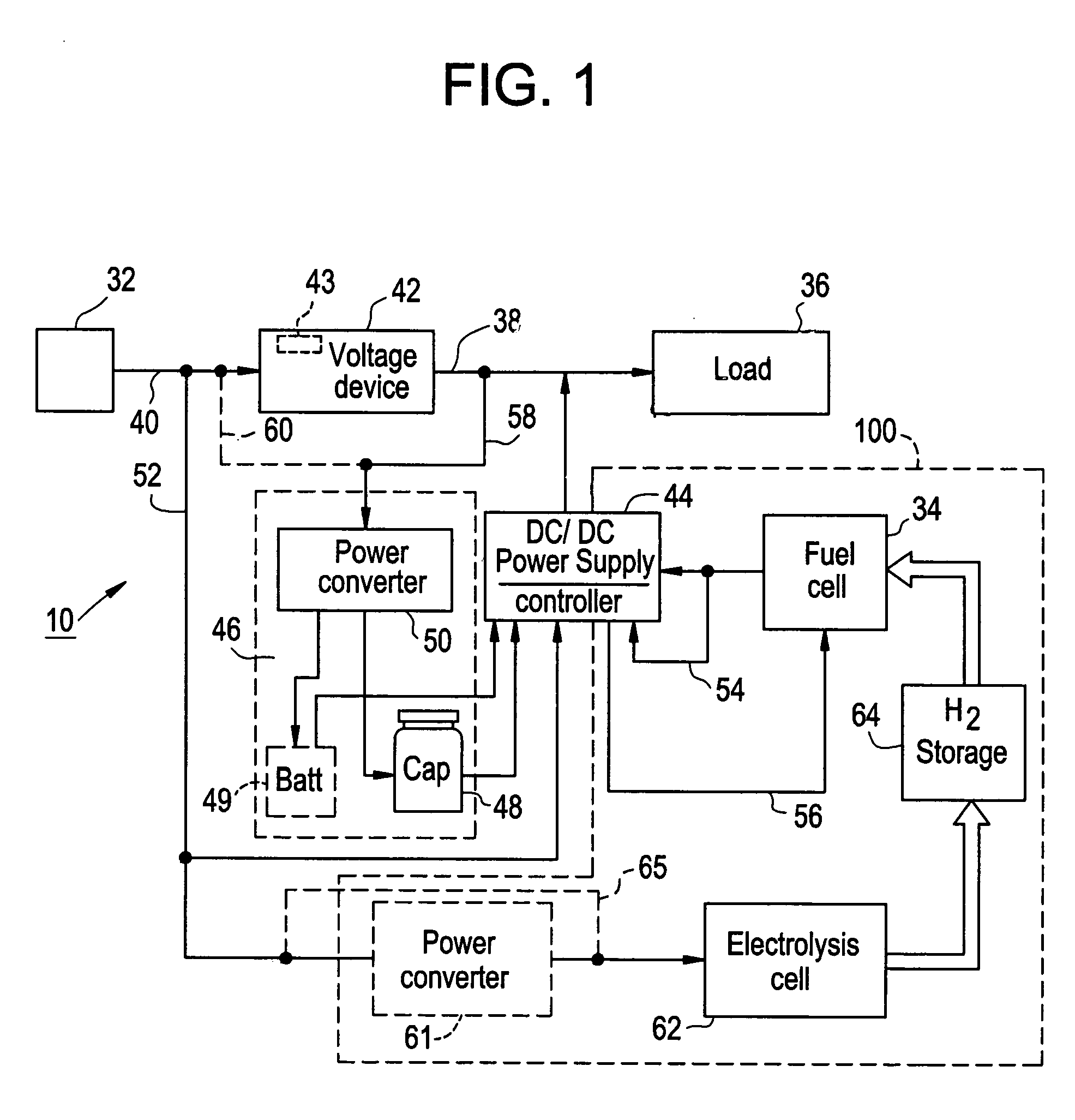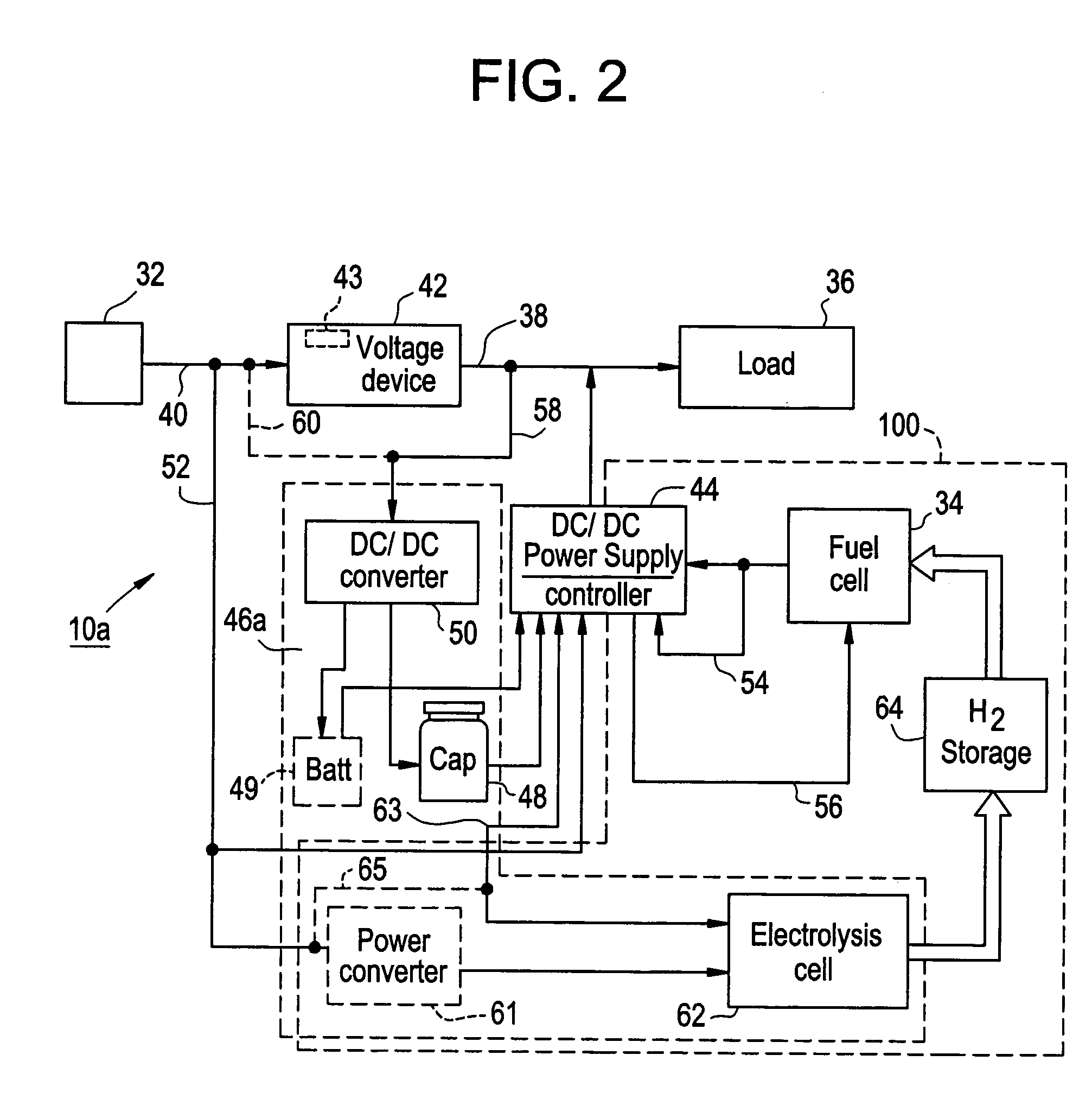Method and system for controlling and recovering short duration bridge power to maximize backup power
- Summary
- Abstract
- Description
- Claims
- Application Information
AI Technical Summary
Problems solved by technology
Method used
Image
Examples
Embodiment Construction
[0028] The following description will provide specific examples with respect to the load and power source voltages for example only. It will also be understood that the method and apparatus for bridging short duration power interruptions may be used with different types of primary / secondary sources and / or other operating voltages, and is not limited to the implementations described herein. Various power sources can range from grid power to solar power, hydroelectric power, tidal power, wind power, fuel cell power, and the like, as well as combinations comprising at least one of the foregoing power sources (e.g., via solar panel(s), wind mill(s), dams with turbines, electrochemical cell systems, and the like).
[0029]FIG. 1 depicts a block diagram of a portion of power system 10 having a primary power source 32 such as generated grid power or that from a renewable source, a secondary power source 100 and a load 36, which load 36 is fed from a feeder bus 38. In the example shown, the p...
PUM
 Login to View More
Login to View More Abstract
Description
Claims
Application Information
 Login to View More
Login to View More - R&D
- Intellectual Property
- Life Sciences
- Materials
- Tech Scout
- Unparalleled Data Quality
- Higher Quality Content
- 60% Fewer Hallucinations
Browse by: Latest US Patents, China's latest patents, Technical Efficacy Thesaurus, Application Domain, Technology Topic, Popular Technical Reports.
© 2025 PatSnap. All rights reserved.Legal|Privacy policy|Modern Slavery Act Transparency Statement|Sitemap|About US| Contact US: help@patsnap.com



